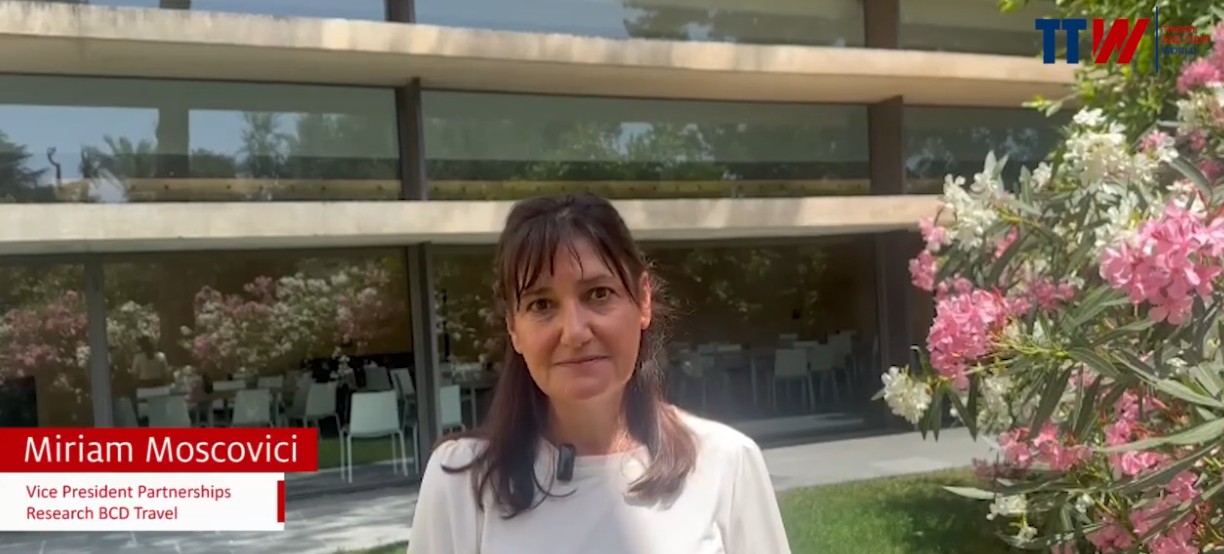Tuesday, June 24, 2025
As the global travel industry finds itself on the cusp of a technological revolution, events like Phocuswright Europe 2025, held in the vibrant city of Barcelona, continue to shine a light on the ideas, innovators, and influencers shaping the future of travel. One such voice is Miriam Moscovici, Vice President of Partnerships and Research at BCD Travel, who offered a compelling look into how startups and AI technologies are transforming the travel and hospitality ecosystem—especially for corporate travelers.
A Stage for Startup Innovation
Participating in Phocuswright not just as an attendee but as a judge for the prestigious startup competition, Moscovici had a front-row seat to witness what she describes as “an exciting spectrum of travel innovations.” From nearly 30 contenders, she observed a surge in startups that are no longer only focused on AI and software platforms—but are beginning to blend digital innovation with real-world, physical service enhancements.
Advertisement
Advertisement
“We saw a ton of variety,” Moscovici shared. “Yes, AI and booking innovation were strong themes, but what caught my eye was the rise of startups integrating hardware and physical touchpoints in the hotel experience. That kind of diversity was really exciting.”
Redefining the Guest Experience Through Technology
Among the standout ideas presented was a solution aimed at improving hotel quality assurance—particularly relevant in today’s staffing-challenged hospitality sector. One startup introduced a platform enabling housekeepers and supervisors to digitally inspect and validate room standards with real-time feedback mechanisms. In Moscovici’s view, this intersection of simple technology and essential human service represents the kind of scalable, high-impact innovation the industry needs.
She emphasized that for corporate travelers, quality and consistency in accommodation aren’t just luxuries—they are necessities.
“As someone working in business travel, I know how much the hotel experience impacts a traveler’s ability to stay productive and comfortable on the road. These kinds of tech-driven quality upgrades directly improve the business traveler’s journey.”
AI, LLMs, and the Rise of Intelligent Booking
The conversation naturally shifted toward AI—specifically Large Language Models (LLMs) and their growing role in the future of travel booking. Moscovici sees this technology as a critical inflection point.
“We’re seeing travelers gravitate toward platforms that offer self-service planning combined with the feel of a personal assistant,” she said. “And with LLMs becoming more robust, the potential to deliver personalized, responsive experiences is immense.”
From smart recommendations to dynamic itinerary building, AI is enabling a new era of travel planning that is faster, more intuitive, and user-centric. However, this innovation comes with a caveat: it’s raising consumer expectations across the board.
“Buyers are going to demand more,” she warned. “And as service providers, we need to rise to meet those expectations—offering not just better booking experiences, but deeper intelligence and insight throughout the travel cycle.”
BCD Travel: Scaling Innovation for the Enterprise
As one of the industry’s leading Mega Travel Management Companies (TMCs), BCD Travel is no stranger to large-scale transformation. With a client roster that includes some of the world’s largest corporations, Moscovici highlighted how BCD is aligning its strategy with the evolving priorities of today’s global business environment.
“In 2025, our clients’ top priorities are savings and cost avoidance, especially given the uncertainty around global travel pricing,” she noted. “But beyond that, what remains constant—year after year—is our focus on traveler safety and duty of care.”
This sense of responsibility underscores much of BCD’s long-term investment strategy. The company is channeling significant resources—both technological and human—into building solutions that offer security, support, and resilience for their clients’ employees on the road.
“We’re not just solving travel problems,” Moscovici explained. “We’re helping companies safeguard their people, maintain productivity, and meet their broader business goals in an unpredictable world.”
Startups Meet Stability: A Synergistic Future
What makes Phocuswright Europe such a powerful platform is its ability to bring together scrappy startups and established giants in the same space. This convergence of fresh ideas and seasoned execution, Moscovici believes, is essential for pushing the industry forward.
“New ideas from the startups and more globally grounded strategies from the larger players—they complement each other,” she said. “It’s how we build a better, more balanced future for travel.”
Barcelona: A Fitting Backdrop for Innovation
Set against the stunning urban canvas of Barcelona, Phocuswright Europe 2025 provided the perfect atmosphere for collaboration and creativity. The city, with its rich cultural heritage and modern infrastructure, mirrored the very tension between tradition and innovation that the travel industry is navigating today.
And for someone like Moscovici—who stands at the intersection of partnerships, research, and strategic foresight—it’s this energy of convergence that inspires hope.
“Innovation doesn’t always mean disruption,” she concluded. “Sometimes, it’s about making the everyday better, smarter, and more human. That’s what excites me most about where we’re headed.”
Tags: Barcelona, Europe, phocusWright, spain, Travel Conference Barcelona, Travel Mart 2025
I want to receive travel news and trade event update from Travel And Tour World. I have read Travel And Tour World’sPrivacy Notice.
Tuesday, June 24, 2025
Monday, June 23, 2025
Tuesday, June 24, 2025
Tuesday, June 24, 2025
Tuesday, June 24, 2025
Monday, June 23, 2025
Tuesday, June 24, 2025
Tuesday, June 24, 2025




